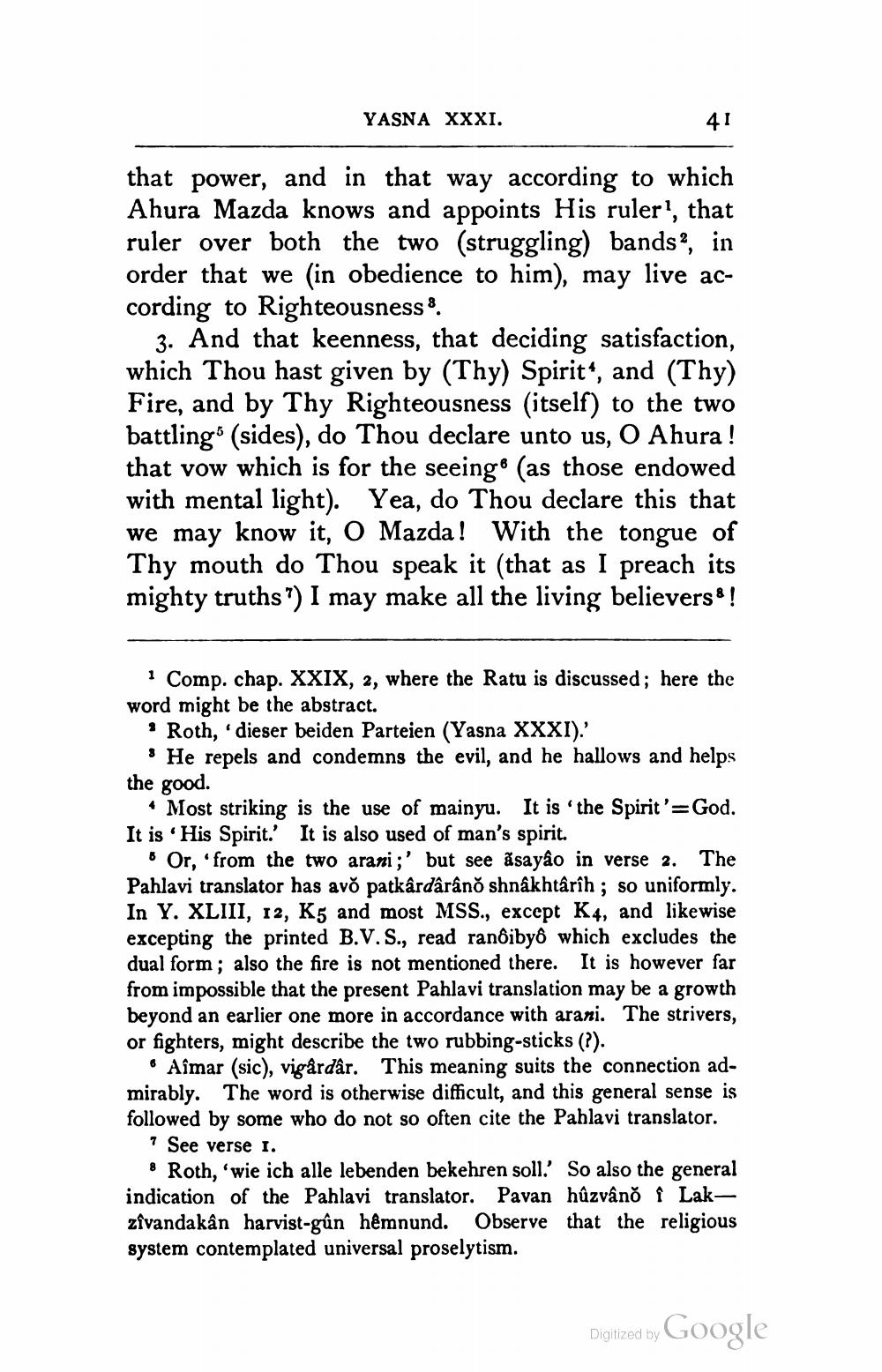________________
YASNA XXXI.
41
that power, and in that way according to which Ahura Mazda knows and appoints His ruler!, that ruler over both the two (struggling) bands, in order that we in obedience to him), may live according to Righteousness 8.
3. And that keenness, that deciding satisfaction, which Thou hast given by (Thy) Spirit", and (Thy) Fire, and by Thy Righteousness (itself) to the two battling' (sides), do Thou declare unto us, o Ahura ! that vow which is for the seeing (as those endowed with mental light). Yea, do Thou declare this that we may know it, O Mazda! With the tongue of Thy mouth do Thou speak it (that as I preach its mighty truths") I may make all the living believers & !
1 Comp. chap. XXIX, 2, where the Ratu is discussed; here the word might be the abstract. • Roth, 'dieser beiden Parteien (Yasna XXXI).'
He repels and condemns the evil, and he hallows and helps the good.
Most striking is the use of mainyu. It is the Spirit'=God. It is His Spirit. It is also used of man's spirit.
• Or, from the two arani;' but see asayâo in verse 2. The Pahlavi translator has avo patkârdârâno shnâkhtârîh ; so uniformly. In Y. XLIII, 12, K5 and most MSS., except K4, and likewise excepting the printed B.V.S., read ranoibyô which excludes the dual form; also the fire is not mentioned there. It is however far from impossible that the present Pahlavi translation may be a growth beyond an earlier one more in accordance with arani. The strivers, or fighters, might describe the two rubbing-sticks (?).
Aimar (sic), vigårdar. This meaning suits the connection admirably. The word is otherwise difficult, and this general sense is followed by some who do not so often cite the Pahlavi translator.
? See verse 1.
& Roth, wie ich alle lebenden bekehren soll.' So also the general indication of the Pahlavi translator. Pavan hûzvâně î Lakzivandakân harvist-gûn hêmnund. Observe that the religious system contemplated universal proselytism.
Digitized by
Digitized by Google




